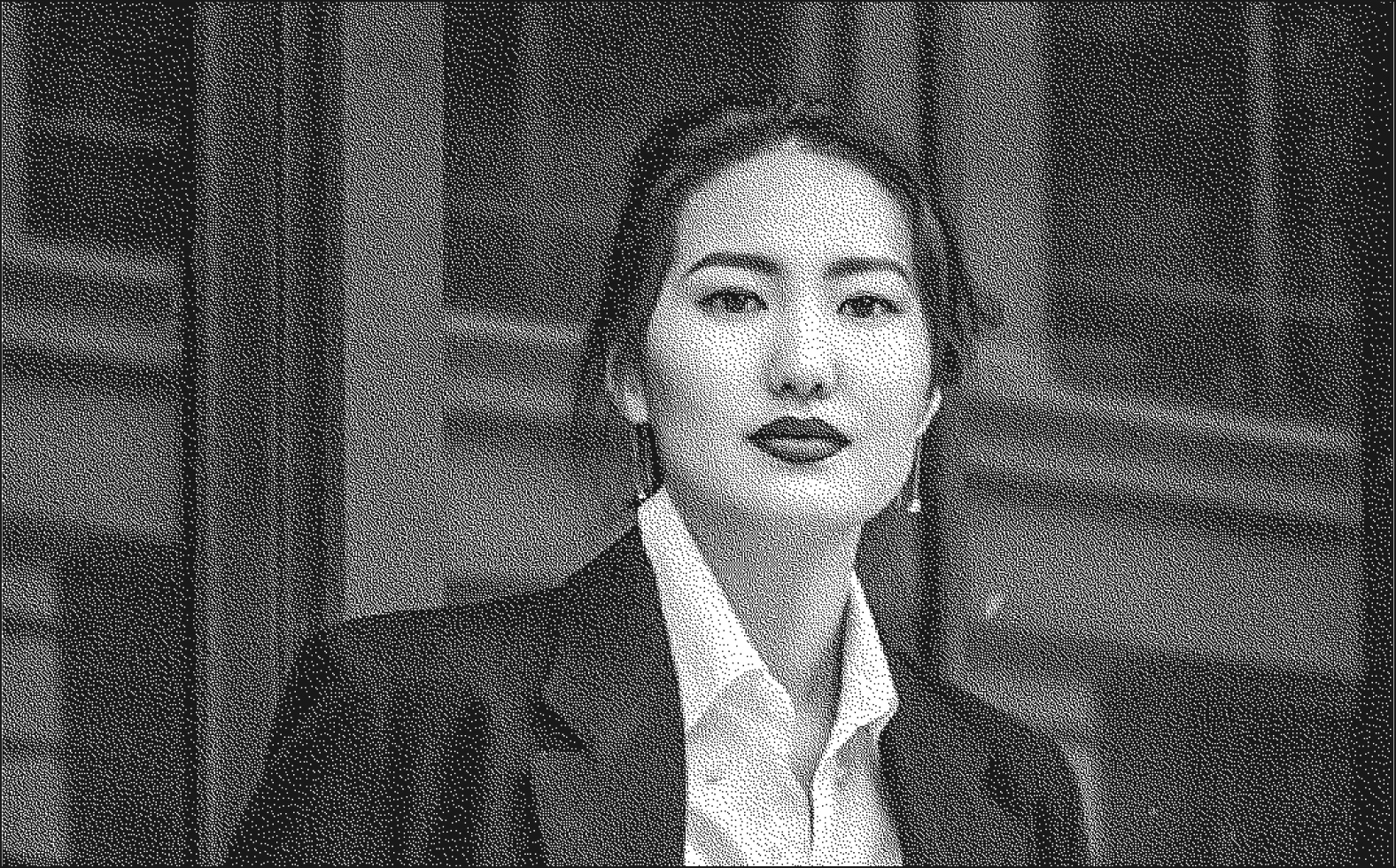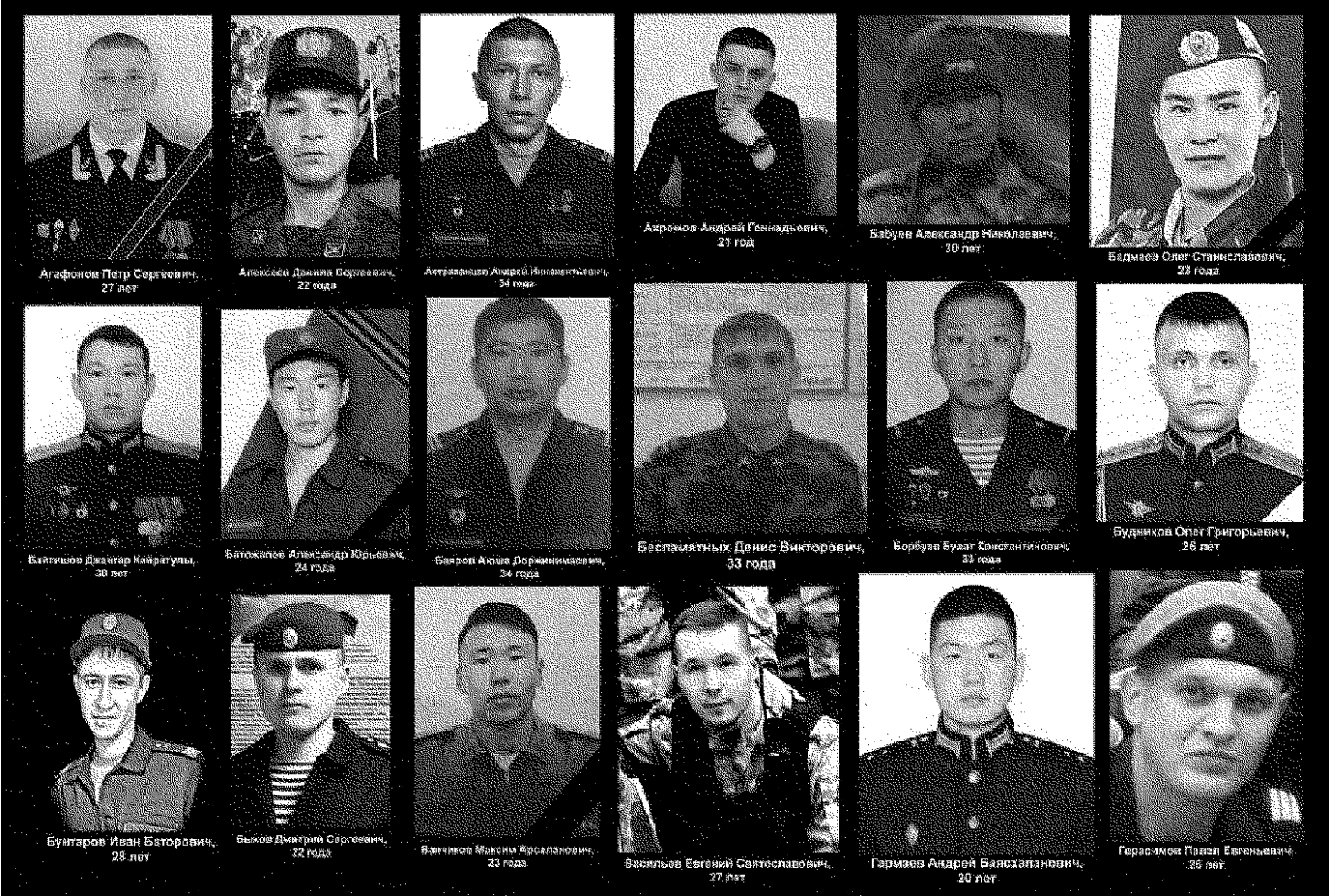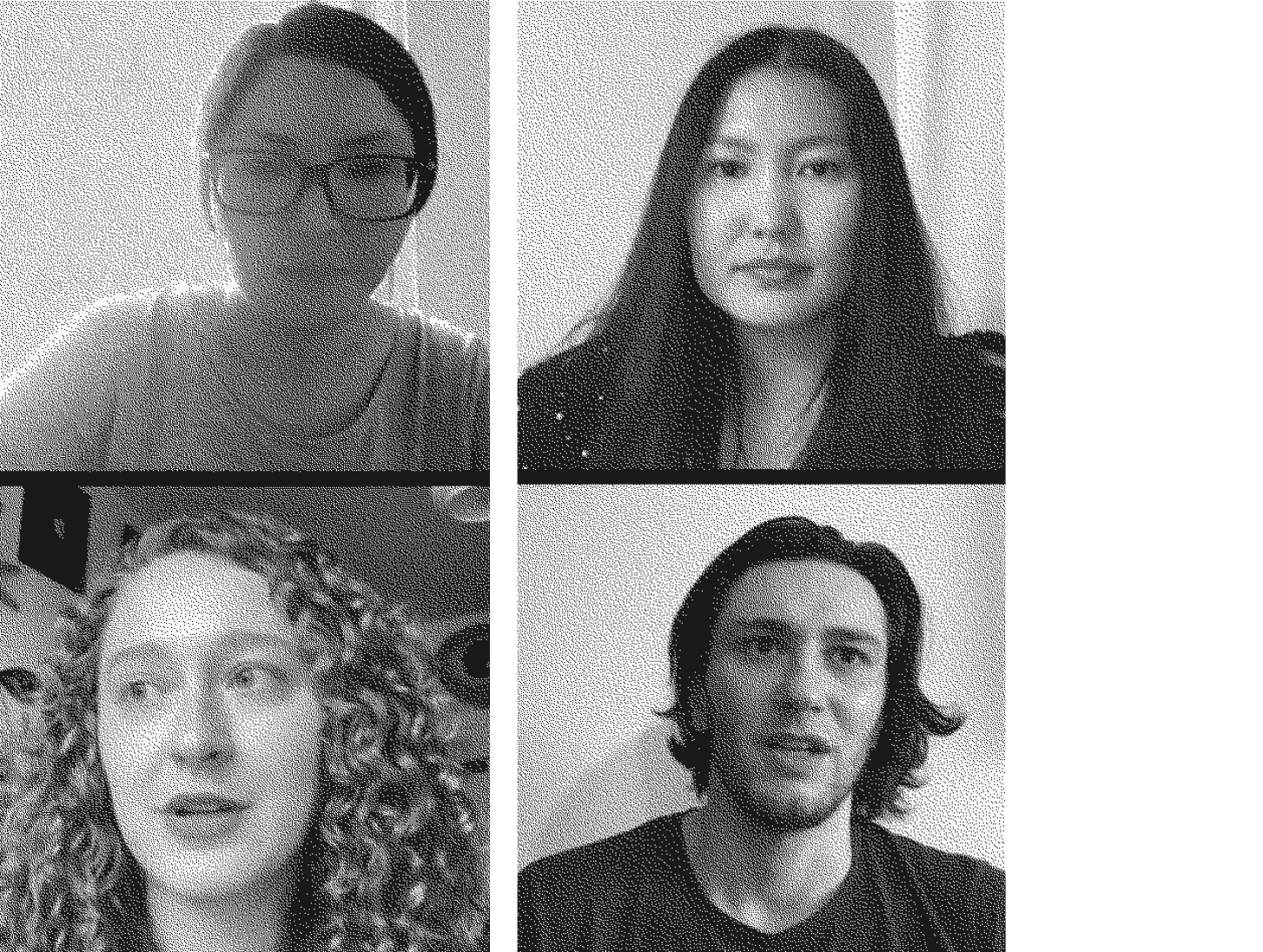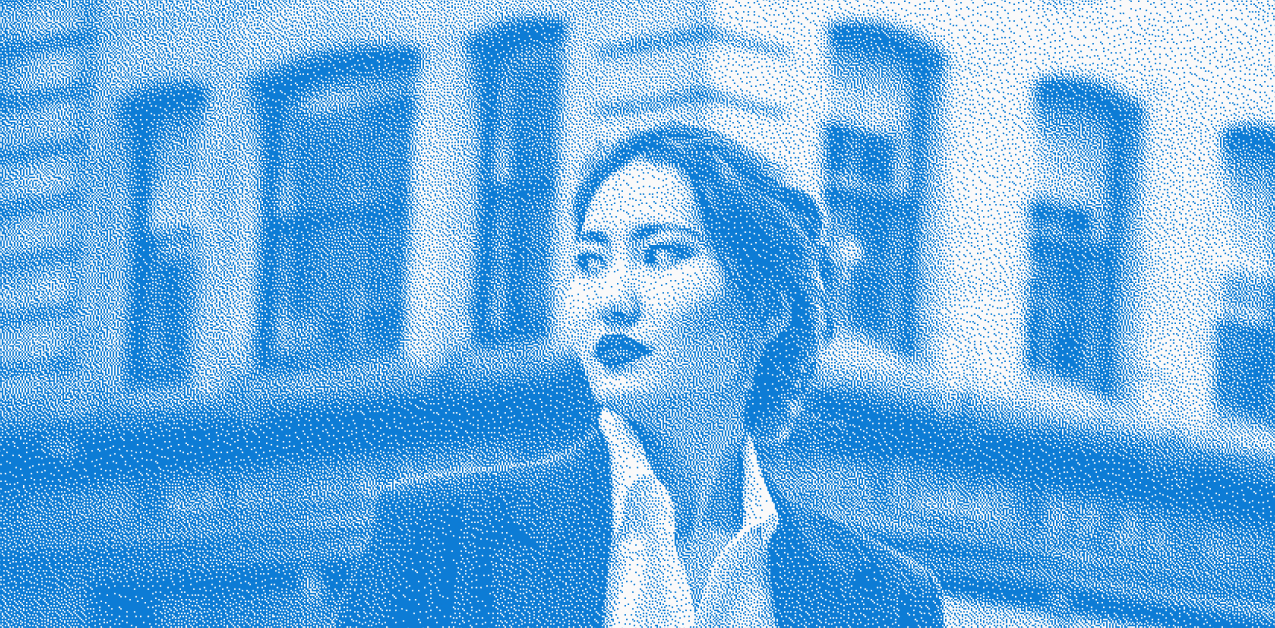To stop the war and provide help for the soldiers’ families, Buryat activists have created an international foundation called Free Buryatia.
Beda Collective spoke with the co-founder Victoria Maladaeva about anti-war resistance, the reasons why Buryats are sent to war, Moscow’s imperial attitude towards other regions and why Russians need decolonization.
— Tell us about the foundation. What inspired you to create it? Who is on the team? What are your goals?
— The Foundation was based on the Buryats Against The War movement that we have gathered by bringing together a number of passionate fellows we knew in person. It happened about a week after the military actions in Ukraine This refers to the full-scale Russian invasion of Ukraine on February 24, 2022. It is important not to forget that the war in Ukraine started in 2014. . We felt the need to do something, not just sit quietly. It was clear to us that we are once again made the front image of this war, just like it was in 2014, when Buryats have become infamous because of the war efforts in Donbas, all thanks to Kremlin. We saw this Narrative is a reproduction of events, an interpretation of what is happening from a certain position. In a broad sense, the synonyms are narration or story. In political narrative, various imaginative techniques used by politicians and journalists in the media play an important role. This may include, for example, a picture of an event or action, as well as characters of an event that have certain qualities and roles. Creation and maintenance of political images by politicians and media through their reproduction fixes the ‘conceptual map’ — the political image for the audience. once again when Sheinin, the First Channel propagandist, said on the air: “Do your duty, brothers Buryats”. That’s why we wanted to point out that there are Buryats who speak against the war. We were ready for criticism from fellow country folk, knowing how powerful the propaganda works. It seemed that everybody supports this war. However, the response we received from the locals was surprisingly warm.
We produced a lot of videos [with statements of Buryats against the war]. Some of them already have more than a million views. We found Ukranian Buryats. It was important for us to show that Ukraine is a multinational country, just like Russia. After that we realized that it is not enough just to make campaigns. A huge amount of people were dying. Our work mounted up. People who didn’t want to fight needed legal assistance. That’s when we founded Free Buryatia. We were looking for lawyers, consulting with human rights defenders and thus expanding. Now our analytics have a huge work load, every day they keep their eye on various groups on Facebook and Viber. All this information is held back [by the government]. We have to collect the data about the deceased literally bit by bit. There are 11 members in the team now. We are growing slowly.

— Why do you think the propagandists emphasize that it is non-Russians who fight? A Putin’s phrase comes to mind: “I am Lak, Dagestani, Chechen, Ingush, Tatar, Jewish, Mordovian, Ossetian…”
— Russian propaganda uses ‘national minorities’ to blame for acts of villainy once again, and everybody sees that perfectly clear. They were saying that Russian soldiers save kittens in Donbas, while Buryats, Chechens and Tuvinians loot and rape. It’s an old imperial tactics. The Kalmyks have gone through this—a whole nation was claimed an enemy of the Soviet people. It’s an old-established practice of Kremlin.
— Tell us about Buryatia. It is believed that it would have been a rich and prosperous region if not for Moscow’s colonial policy. What do the people who live in the Republic think of it?
— Buryatia is a blossoming land of mountains in taiga. It’s a multinational republic, the home of Russians, Buryats, Evenkis, Ukranians and many more. Different cultures, languages and traditions are intertwined here. There are many treasures of the soil here: we are #9 in gold digging in Russia as well as the leaders in coal mining. We have a lot of jade (greenstone) and, of course, woods. In the times when tsarist Russia was conquering Siberia, Buryatia was a precious source of fur. But one of the main wealths is our people. Buryats are considered to be the third most educated nation in Russia. Our grandparents started to send their children and grandchildren to universities long-long ago.
— In the History of Russia coursebooks or in some official documents it is presumed that Buryatia, Yakutia, Bashkortostan and other republics joined the Empire voluntarily. At the same time a lot of independent researchers claim that the annexation of Buryatia and other territories was quite rough. How deep is Buryats’ knowledge of their own history?
— There is no and never was such information in the coursebooks and never will be [if everything stays the same], so not all residents of the Republic know their history. It’s not profitable for colonists to let their colonies know their story, language and culture.
We were taught in school that 300 hundreds years ago our Khans have gathered and agreed to go across the steppes, the mountains and the woods to bow to a Tsar; “Take us into Russia with you, please”. That didn’t make any sense to me, even when I was a baby. But in school they said that Ermak came, and that’s it. Then there goes a gap, and we start to learn about the tsarist period right away. But we are aware of the so-called ‘conquest’. How brutally Buryats were baptized, how the language was introduced by force. Everybody was given a Russian name and surname. In the 1930s the whole intellectual elite of Buryatia was shot for Panmongolism is a movement for unity of Mongolian nations into one state. . These people were passionate about Buryat language, identity and consciousness.
A lot of USSR nations have gone through this. They were being imprisoned and put to death. There are historians in our team, and we are going to write a piece about it. We will unravel the truth. I believe that it is necessary for the residents of all modern colonies.
— Why is this necessary? Arguments like “It’s ancient history, why rock the boat?” could be often heard.
— “Why rock the boat?” is a colonist’s mindset. They are satisfied: they get paid their tribute, they get money from all the colonies. They give nothing [to the colonies] in return, only use them for their own purposes.
It’s in their best interest to keep people in a dormant, puppet-like state. Of course they will try to convince people that everything is fine. “Don’t worry, why bring up the past” and so on. But without history, without past, there is no future.
— Why do Russians themselves need decolonization?
— To become truly free. For us to know the histories of each other, our traditions and cultures. Only then we will really be able to respect each other. Maybe we could even start getting along, knowing all the pain that my people have been through. And if the person whose ancestors are responsible for that can accept that. Not apologise—we don’t expect an apology,—it’s about acceptance. It is crucial to know the truth.
— Were there national movements in Buryatia in the recent past and how they turned out?
— Yes, Buryats are a bold nation. For example, we organized the first ethnic anti-war movement. Even FSB officials admit that the Kremlin is very afraid of Separatism (in Russia) is a phenomenon based on the aspirations to sovereignty or autonomy of certain regional groups within the declared borders of the Russian Federation. It can be based on different policy requirements, either economic, such as redefinition of relations between the regions and the center, or those related to cultural and linguistic rights. . Buryats are feared the most, because we have long been known for our courage and struggle. Please note that when Buryatia held elections for the State Duma, the support of the authorities has usually been much lower than in other national republics. At 45% turnout in Buryatia 42.5% voted for United Russia (In Chechnya, 96% voted for United Russia at 94% turnout. In Tatarstan—79 at 79%, Dagestan—84.5 at 81%, Tuva—83 at 85%, Karachaevo-Cherkessia—89 at 80% accordingly)[1]. There is a Buryat activist Vladimir Khamutaev who wrote a book called Incorporation of Buryatia into Russia: History, Law, Politics. He was labeled a separatist and prosecuted just for writing a book about the colonization of Buryatia. He had to flee the country.
Now we have partisans and activists who have been fighting the regime for a while now. Every time there was a presidential election, the Head of the Republic or mayoral election, we had big rallies.
— Some representatives of the liberal opposition not only ignore the agenda, but also make rather provocative statements about the indigenous peoples of Russia.
— Yes, for example, Nevzorov in a recent interview to Gordon said that Maria Zakharova can easily satisfy a troop of Buryats. As in Buryats don’t care who they rape. We were shocked. Many treat Nevzorov as a liberal opposition figure, but he is simply a Chauvinism is the attitude of national superiority towards members of another ethnic group with the purpose to justify the right to discriminate, exploit and oppress other people. Chauvinism contributes to the spread of dislike and even hatred on the principle of different—stranger—alien—enemy. It is a form of xenophobia. .
More than a hundred other nationalities are involved in the current war besides Buryats. We’re only 0.3%, and suddenly we’re the front image of this war. I get that a lot of Buryats are there, but certainly no more than Russians, which is 95%. If you look at all the photos and videos of Prisoner of war. on YouTube or on Look for Your Own project’s channel, 99% of them are Russians. Buryats make up only about a dozen per thousands.

— Another comment that often arises in the discussions of the war in Ukraine: “Why are you bringing up your decolonization, gender, environmental agenda? How does that stop the war?” Would you say this is relevant to the current situation?
— It’s all connected in one way or another. If there was no such level of Xenophobia—intolerance to anyone or anything alien, unfamiliar, unusual; a perception of foreign as unpleasant and dangerous; suspicion and hostility towards immigrants and people of “foreign” culture, faith, nationality. and racism in Russia, this war would have never been possible. We have to deal with the prime cause as well.
— Does Free Buryatia Foundation have a political program?
— We do have political goals. We advocate for horizontal relations with regions, for a real federation which now only exists on paper. Why are there so many deaths in Buryatia? Because Moscow has not been giving money [to the Republic]. Our region is economically poor and has been experiencing out-migrations for many years. All young people have to go work on watch on Kamchatka, in Korea. Probably a third has already had worked in Korea. We have a high debt load of population. There are no roads. There’s nothing. All these reasons account for so many army men who left for Ukraine by contract. Plus, Buryatia has a lot of military units. That’s why we support federalization. So that Buryatia can make its own money and distribute its own resources. For example, Gazprom has moved from Moscow to Saint Petersburg, and just because they changed their registration, billions have flooded the Petersburg economy. And where does Gazprom produce oil? In all regions of Russia. The same goes for our gold, coal and so on—everything heads off to Moscow.
— You invited not only representatives of the Buryat people on your Instagram livestreams, but also Alisa Gorshenina, an artist from Nizhny Tagil, a Chechen blogger Abubakar Yangulbayev and others. Why is it important for you to give the platform to other voices as well?
— We advocate for building connections with other regions, so we get acquainted with activists from all over the place little by little. It’s true, we’ve had the nicest conversations with Alice and Abubakar. Soon we will be talking to Kalmyk and Tuvan activists.
We are always glad to meet and hang out. Because we know very little about each other. The history of Russia we’ve got is only the history of Russians, nobody studies the history and traditions of other peoples. But I think it’s so fascinating to study other cultures. That’s why we are open to these connections. We don’t shut down.

— Finally we would like to know your personal story. How did you become an activist?
— I have been living in California with my family for 6 years now. We won a Green Card. I work in IT, I am an UX-designer. We travel a lot, we love to see new countries and learn about different cultures. My daughter is 10 years old. I have 3 cats. Basically, everything was fine before the war.
After February 24, our activist Dorjo Dugarov texted me. Said he could help with the POW’s: we could pass on family contacts to him, and he would look for them. My friends and I, we started digging up. Then we realized how many of our countrymen are there. Not only Buryats, but also Russians. We had to do something. We found out our people are used as cannon fodder, saw how many people are Missing in action. .
As a result, my like-minded friends and I started recording videos, helping soldiers break their contracts, doing a lot of media work. It helped us get through the first few months of the war. We encourage other regions to keep statistics and push back against propaganda. We are ready to share our experience and make ourselves useful for others.
